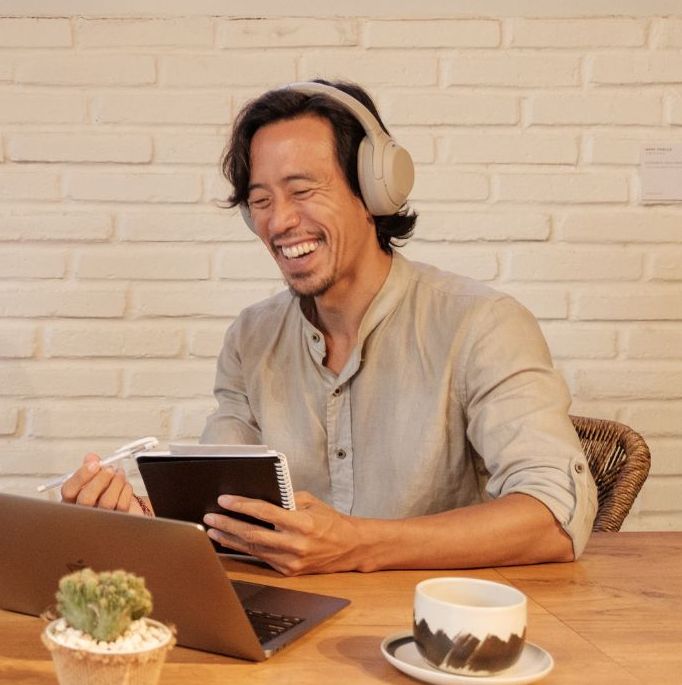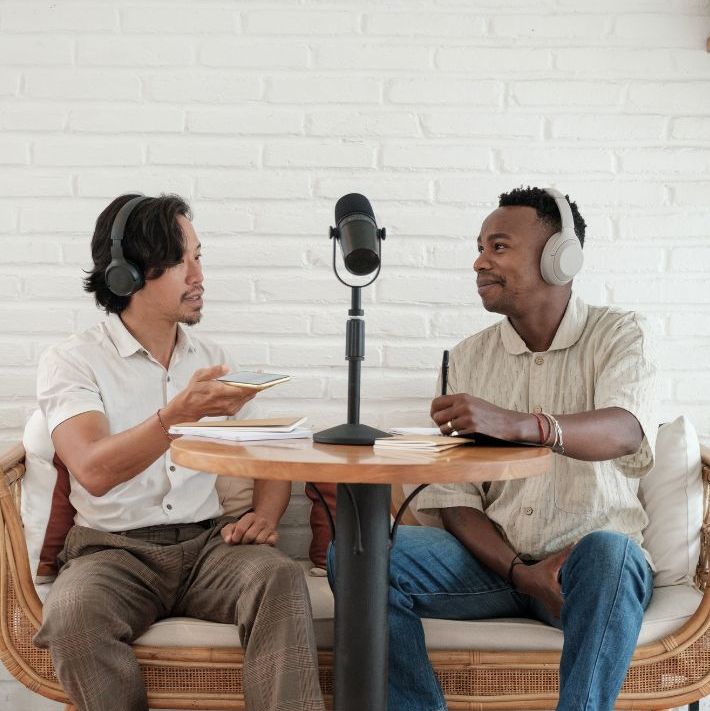Active Listening During An Interview: Key Strategies and Techniques
These FAQs address the most common questions that people may have when it comes to planning, preparing for, conducting, and analysing interviews for various purposes. These FAQs are applicable to a wide range of industries and situations, such as academic research, radio broadcasting, podcast or webinar hosting, journalism, job interviews, and many others. The information provided also delves into specific aspects of the interview process, including planning for individual or group/focus group interviews, important considerations during interviews, effective questioning techniques, different interviewing styles, and the steps to review and interpret the outcomes after the interview has taken place.
What is The Importance of Active Listening During an Interview?
In the world of interviews, whether you’re a researcher, journalist, podcaster, or human resource manager, active listening is a skill that can make or break the success of your interview. But what exactly is active listening? Active listening is a communication skill that goes beyond simply hearing words – it involves fully engaging with the speaker, understanding their message, and responding thoughtfully. In an interview setting, mastering active listening techniques can help you extract valuable insights, foster a more open and productive conversation, and build stronger connections with your interviewees.
The importance of active listening cannot be overstated, as it is the foundation upon which effective interviews are built. In this article, we will briefly explore the significance of active listening during an interview, providing you with a comprehensive guide to enhance your interview listening skills. We will also offer some key practical strategies and steps to help you maintain a conversational tone throughout your interviews, ensuring you make the most of your interactions.
10 Key Listening Skills
#1 Building Rapport and Trust
Building rapport and trust with your interviewee is vital for a successful interview. Active listening fosters a sense of trust and connection. When you listen attentively, your interviewee is more likely to open up and share their thoughts and experiences, ultimately leading to a more insightful conversation.

Building a strong rapport and trust with your interviewee is not just a superficial courtesy – it’s the cornerstone of a successful interview. Active listening is the catalyst that fosters a profound sense of trust and connection between you and the interviewee. When you listen attentively, your interviewee is not only more likely to open up, but they also feel valued and respected. As a result, they become more inclined to share their thoughts, experiences, and insights, which in turn leads to a richer and more insightful conversation.
Additional Thoughts: Building rapport and trust begins before the interview itself. Researching your interviewee, understanding their background, and showing a genuine interest in their work can go a long way in establishing a positive rapport. During the interview, use their name when addressing them, and remember to thank them for their time at the end to leave a lasting positive impression.
Example: You might start by offering a genuine compliment or expressing empathy towards their experiences, which can create a comfortable and open atmosphere for the interview.
#2 Clarifying and Summarising
Active listening involves asking clarifying questions and summarising what you’ve heard. This not only demonstrates your engagement but also ensures that you fully understand the interviewee’s perspective.
Active listening extends beyond merely hearing words; it involves asking clarifying questions and summarising what you’ve heard. By actively seeking clarification and summarising their responses, you not only demonstrate your engagement but also ensure that you have a comprehensive understanding of the interviewee’s perspective. This not only reduces the chances of misunderstandings but also allows the interviewee to refine their message, contributing to a more effective and impactful exchange of ideas.
Additional Thoughts: When you clarify and summarise, you can also use this as an opportunity to seek further details or ask follow-up questions. This demonstrates your commitment to understanding the topic thoroughly and helps the interviewee feel heard and valued.
Example: After your interviewee shares a complex idea, you could say, “So, if I understand correctly, you’re saying that…”
#3 Avoiding Assumptions and Biases
Active listening requires you to set aside your preconceived notions and biases. It’s essential to approach each interview with an open mind and a willingness to learn.
The impartiality of active listening cannot be overstated. Active listening necessitates setting aside preconceived notions and biases, ensuring that each interview is approached with an open mind and a genuine willingness to learn. Assumptions can lead to misinterpretations and missed opportunities for deeper insights. By approaching interviews with a clean slate, you create a neutral and unbiased platform for the interviewee to express themselves freely.
Additional Thoughts: Recognising your biases is the first step. It’s essential to reflect on your own perspectives and consider how they may influence your understanding of the interviewee’s responses. Self-awareness is key to combating biases effectively.
Example: If you have certain expectations about the interviewee’s response, remind yourself to be open to unexpected insights.
#4 Nonverbal Communication
Nonverbal cues, such as eye contact, nodding, and body language, play a crucial role in active listening. These cues signal to the interviewee that you are fully engaged and receptive to their words.
Nonverbal cues are the unsung heroes of active listening. Subtle gestures like maintaining eye contact, nodding in agreement, and adjusting your body language to convey engagement play a pivotal role in effective communication. These cues signal to the interviewee that you are fully engaged, receptive to their words, and genuinely interested in what they have to say.
Additional Thoughts: Nonverbal cues should align with the tone of the conversation. For example, maintaining a warm and empathetic facial expression is crucial when discussing emotional or sensitive topics. It’s important to be consistent and genuine in your nonverbal communication to establish trust.
Example: Maintain eye contact and lean forward slightly to show your interest, but ensure you are not invading their personal space.
#5 Empathetic Listening
Empathy is a key element of active listening. Understanding the interviewee’s emotions and experiences allows you to connect on a deeper level and show genuine care for their perspective.
Empathy is a defining element of active listening. Going beyond understanding the words, empathetic listening involves recognising and acknowledging the interviewee’s emotions and experiences. This not only allows you to connect on a deeper level but also conveys genuine care for their perspective. Empathetic listening fosters an environment where interviewees feel heard, respected, and validated.

Additional Thoughts: To express empathy effectively, it’s important to use phrases that show you understand the interviewee’s feelings. Phrases like “I can see that this meant a lot to you” or “I can imagine that must have been really challenging” demonstrate your empathy and understanding.
Example: When discussing a challenging experience, express empathy by saying, “I can imagine that must have been really tough for you.”
#6 Asking Open-Ended Questions
Craft open-ended questions that encourage the interviewee to share more about their thoughts and experiences. These questions stimulate meaningful conversations and allow for a broader range of responses.
Crafting open-ended questions is a skill that can transform your interviews. Open-ended questions encourage interviewees to share more about their thoughts and experiences, prompting meaningful and in-depth responses. They create a space for the interviewee to express themselves freely and provide a broader range of perspectives and insights.
Additional Thoughts: The art of crafting open-ended questions lies in asking “what,” “how,” or “why” questions rather than those that can be answered with a simple “yes” or “no.” These questions invite interviewees to elaborate and share their unique perspectives.
Example: Instead of asking, “Did you enjoy your last job?” you could ask, “Can you tell me about your experience at your last job?”
#7 Resisting the Urge to Interrupt
Interrupting your interviewee can disrupt their flow and hinder the development of a comprehensive answer. Active listening involves patiently waiting for the speaker to finish before responding.
Interrupting an interviewee can disrupt the natural flow of their thoughts and hinder the development of a comprehensive answer. Active listening demands that you patiently wait for the speaker to finish before responding. This not only allows the interviewee to express themselves fully but also demonstrates respect for their perspective.
Additional Thoughts: If you have a burning question or thought, jot it down as a note during the interview. This way, you can revisit it once the interviewee has concluded their point, maintaining the flow of the conversation.
Example: Even if you’re excited to delve deeper into a point, hold your questions until the interviewee has completed their thought.
#8 Reflective Listening
Reflective listening involves mirroring the interviewee’s emotions and experiences. This technique validates their feelings and demonstrates that you understand their perspective.
Reflective listening goes beyond words; it involves mirroring the interviewee’s emotions and experiences. This technique validates their feelings and demonstrates that you truly understand their perspective. By reflecting their emotions and experiences, you create a deeper connection and reassure the interviewee that their thoughts and feelings are acknowledged.

Additional Thoughts: Reflective listening can be a powerful tool to address potential miscommunications or conflicts during the interview. By reflecting their emotions, you can clarify misunderstandings and ensure that you’re on the same page.
Example: If the interviewee expresses enthusiasm, mirror their excitement by saying, “It sounds like you’re really passionate about this project.”
#9 Maintaining Focus
In our increasingly distracting world, maintaining focus during an interview is a challenge. Active listening demands your undivided attention and discipline in resisting distractions.
In an era of increasing distractions, maintaining focus during an interview is a formidable challenge. Active listening requires your undivided attention and discipline in resisting distractions. Distractions not only undermine the quality of your interview but also convey disinterest to the interviewee.
Additional Thoughts: Create a conducive interview environment. Ensure that you are in a quiet and distraction-free space. Communicate with your surroundings, such as colleagues or family, to avoid interruptions during the interview.
Example: Turn off your phone or any other potential distractions during the interview to ensure you’re fully engaged.
#10 Continuous Self-Improvement
Active listening is a skill that can always be improved. Regularly reflect on your interviews and identify areas where you can enhance your listening techniques.
Active listening is a skill that can always be improved. Regularly reflecting on your interviews and identifying areas where you can enhance your listening techniques is essential. Seek feedback from peers, mentors, or even the interviewees themselves to gain valuable insights into your strengths and areas for improvement.
Additional Thoughts: Consider recording your interviews and reviewing them critically. This self-assessment can help you identify patterns in your listening habits and areas for growth. Additionally, staying updated with the latest research and techniques in active listening can be instrumental in continuous self-improvement.
Example: Consider seeking feedback from peers or mentors to gain valuable insights into your interview listening skills.
Active Listening – Some Key Tips
- Building trust and rapport with your interviewee is the foundation of effective active listening. Show genuine interest and empathy to create a comfortable atmosphere.
- Practice summarising and clarifying what you’ve heard to ensure a mutual understanding.
- Be aware of your biases and assumptions and consciously set them aside during interviews.
- Utilise nonverbal cues to signal your engagement, such as maintaining eye contact and using affirmative gestures.
- Empathy plays a crucial role in active listening – understanding and acknowledging the interviewee’s emotions fosters a deeper connection.
In the world of interviews, active listening is an invaluable skill that can elevate your conversations from mundane to extraordinary. By actively engaging with your interviewees, you build trust, gain deeper insights, and foster more meaningful connections. The strategies and techniques discussed in this article, from building rapport and trust to continuous self-improvement, provide a comprehensive guide to mastering the art of active listening during interviews.
Remember that active listening is an ongoing journey of self-improvement. It requires dedication, practice, and an open mind. Embrace the opportunity to learn from each interviewee, and you’ll find that your conversations become more enlightening and rewarding.
Quick Listening Skills Resources
Way With Words: Way With Words is a top-notch transcription service that can greatly assist you in maintaining accurate records of your interviews, ensuring you don’t miss a word. Their professional transcription services are a valuable resource for interviewers looking to enhance their interview listening skills.
Harvard Business Review – The Value of Active Listening: This article from Harvard Business Review offers valuable insights into the significance of active listening in professional settings.
Listening Strategy – Questions
As you reflect on the importance of active listening during interviews, consider the following questions:
- How has active listening positively impacted your interviews or professional interactions?
- What challenges have you encountered in maintaining a conversational tone during interviews, and how have you overcome them?
- Can you share a personal anecdote where active listening led to a significant breakthrough in your interview?
